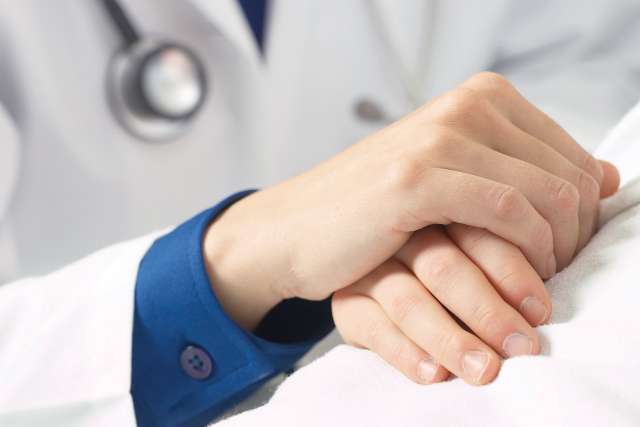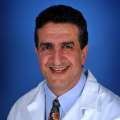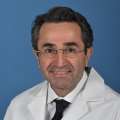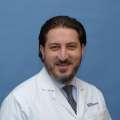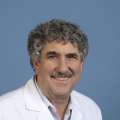Hand Transplant
The specialists in the UCLA Health Hand Transplant Program provide advanced transplant care. As one of the earliest centers to offer hand transplants, we continue to bring you the newest techniques and treatments.
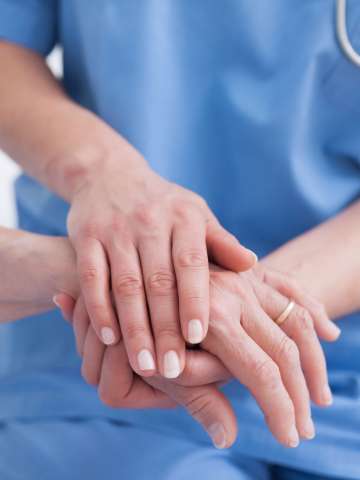
Why choose UCLA Health for hand transplantation?
Through the UCLA Health Hand Transplant Program, we provide hand transplant surgery and research the newest, groundbreaking techniques. We founded our program in 2010, establishing the first hand transplant program on the West Coast. In the years since, we have continually offered expert, lifechanging care for patients who have lost a hand.
Highlights of our program include:
Regional and national leaders: Our surgeons completed the first hand transplant surgery on the West Coast in 2010, making UCLA Health the fourth center in the nation to perform this procedure. When you choose our team, you receive care from some of the most experienced hand transplant surgeons in the country. Today, our doctors continue to use the latest techniques in this powerful treatment, bringing hope and healing to those who have lost a hand.
Team-based care: Our team includes specialists in transplant services, hand surgery, plastic surgery, orthopaedic surgery, psychiatry, pathology, anesthesiology, internal medicine, hematology, radiology, neurology, ethics and rehabilitation services. Recognized leaders in these fields provide you with comprehensive, expert care.
Research-driven treatments: As a top academic center, our physicians stay up to date on the newest hand transplant surgical techniques. We participate in research that allows us to bring you groundbreaking therapies and proven treatments.
What is a hand transplant?
In a hand transplant, surgeons operate to give you new hands if you have had one or both surgically removed (amputated). You may also have a hand transplant if you’ve suffered an injury that led to extreme loss of hand function. This highly complex procedure involves transplanting bones, arteries, veins, nerves, tendons and skin.
Who is eligible for a hand transplant?
Our team selectively chooses appropriate candidates for hand transplantation. To be eligible, you must be between ages 18 and 60 and have:
- An amputation at the wrist or forearm
- An amputation that wasn’t due to cancer or a birth defect
- Good overall health
- No serious infections such as hepatitis B, hepatitis C or HIV
If you meet the eligibility criteria, you undergo an evaluation that typically includes a physical exam and questions about your medical and family history. You also have:
- Blood work
- Imaging tests such as MRI, CT or X-ray
- Psychological wellbeing evaluation
How do I get a donor limb for a hand transplant?
After being accepted into the program, you’re placed on a waiting list until a suitable donor limb becomes available. Hand and arm donations aren’t part of the driver’s license organ donation registry. Instead, we work with families to go through a special consent process for donor hands and arms.
Choosing the right donor limb is key to the success of a hand transplant. We take care to match donor’s hand size, skin color and tone, gender and ethnicity to that of the recipient. coordinates suitable donor limb matching to improve surgery results.
What to expect with a hand transplant
Once you're on the hand transplant waiting list, our team reaches out to you to schedule surgery as soon as we have a donor limb for you. Surgery can last up to 12 hours and requires a team of highly specialized surgeons working together.
You recover in the intensive care unit (ICU) for a few days after surgery. Most patients continue recovery in the hospital for between one and three months. The length of your hospital stay depends on multiple factors, including how far you live from UCLA Health and how much support at home during recovery.
What happens after a hand transplant?
As with many other types of transplants, you take immunosuppressive medications after surgery to lower your risk of rejecting the graft. You also undergo intensive rehabilitation to restore hand function. You usually start rehab within 48 hours of surgery and continue for several months.
Patients participating in our Hand Transplant Program undergo periodic biopsies and lab evaluations. They need to stay in Los Angeles for postoperative monitoring for a period after surgery.
Meet the team
UCLA Health physicians work at the forefront of research and innovation, continually setting and raising the standard in quality care. As only of only a few hand transplant programs in the nation, we use an experienced team-based approach and advanced skills to provide exceptional hand transplant care. Learn more about our experts.
Transplant Surgical



Transplant Medical


Contact us
Patients who meet the basic eligibility requirements and wish to be considered for the UCLA Hand Transplantation Program should contact us for an initial evaluation.
Dr. Kodi Azari
Surgical Director, Hand Transplantation Program
(310) 825-1745
Use our or call to request an appointment with a hand transplant specialist at UCLA Health.
Find your care
A full team of experts who specialize in hand transplants cares for you. Call to learn more about our Hand Transplant Program.
